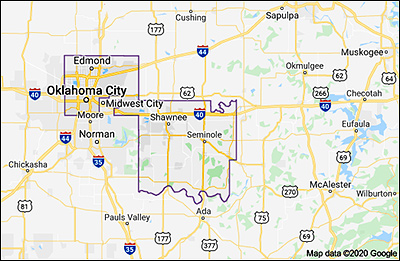By Jim Ellis — August 16, 2022
Primaries
Alaska — The long-awaited Alaska primary and special House election will be decided today, and the state’s unique top-four qualifying primary system will be put to its second test.In the US Senate race, Sen. Lisa Murkowski (R) is running for a fourth full term after being appointed to the seat in 2002 when her father, former Sen. Frank Murkowski (R), was elected governor.
The new top-four system virtually guarantees that the senator will advance into the general election, thus negating the potential of her again losing a partisan Republican primary as she did in 2010. In that year, she was able to win the general election after launching a write-in bid as an Independent.
This time, she faces another Republican challenger, one with former President Donald Trump’s endorsement. Kelly Tshibaka, the former Alaska Director of Administration and Trump-supported candidate, is also well positioned to advance into the general election and may well have been a serious threat to the Senator in a traditional Republican primary.
A total of 19 candidates are on the Senate ballot: eight Republicans, three Democrats, and eight minor party and independent candidates. Of the three Democrats, two — ex-Seward Mayor Edgar Blatchford and former state Senate nominee Pat Chesbro — have previously won campaigns. It is probable that one of these two will also qualify for the general election simply because one will likely attract enough Democratic votes to place either third or fourth.
As is usually the case, polling is sparse in Alaska and we see no late breaking data. This is likely due to the large number of candidates and that a total of four will advance, thus making the primary vote less significant. In the field of four general election candidates, the Ranked Choice Voting (RCV) system will be used. Voters will assign a priority of 1-4 for the listed candidates. Should no one reach 50 percent, the last-place finisher is eliminated and the process continues until one candidate reaches majority support.
The RCV system is in effect today and will produce a winner among the three finalists in the US House special election campaign to succeed the late at-large Rep. Don Young (R-Ft. Yukon).

Sarah Palin, former Alaska governor and vice presidential candidate, now running for US House Representative
It is likely that Peltola will finish first, consolidating the Democratic vote, but falling well short of majority support. Thus, the RCV system would then swing into action. The key position will be second, and all indications suggest that Palin and Begich are in a tight battle to avoid elimination. It is then probable that the surviving Republican will defeat Peltola in the second round.
Gov. Mike Dunleavy is also on the ballot running for a second term. It is expected that Dunleavy, former Gov. Bill Walker (I), and ex-state Rep. Les Gara (D) will secure three of the four available general election ballot positions.
It will be an interesting night in Alaska, but results won’t likely be clear until well into Wednesday considering the significant time change and the counting delays often seen in the Last Frontier when tabulating votes from the remote rural areas.
Hawaii — Hawaii held its statewide primary Saturday, and the results produced no surprises. In the defining Democratic primary, Lt. Gov. Josh Green, a physician, easily defeated former Aloha State first lady Vicky Cayetano and US Rep. Kai Kahele (D-Hilo) in a landslide 64-21-14 percent, respectively. Green now becomes the prohibitive favorite to defeat Republican nominee, former Lt. Gov. Duke Aiona, who scored a majority victory in the GOP primary.
In the open 2nd House District race, former state Sen. Jill Tokuda recorded a 59-25 percent victory over state Rep. Patrick Branco (D-Kailua) and four others. She now becomes a lock to replace Rep. Kahele who risked his safe House seat for his long shot, and now proven unsuccessful, run for governor. The Republican primary winner, with 83 percent of the vote, is 2020 GOP congressional nominee Joe Akana. Two years ago, he lost to Kahele 58-28 percent in the general election, and is likely headed to a similar fate later this year.
Sen. Brian Schatz was an overwhelming winner in his Democratic primary, notching 94 percent of his party’s vote. He will face state Rep. Bob McDermott (R-Ewa), who won the Republican primary with a 41 percent plurality over four opponents.
Rep. Ed Case (D-Kaneohe) also easily won renomination in his 1st District Democratic primary, with an 84-16 percent landslide over progressive left challenger Sergio Alcubilla.
Democratic turnout overwhelmed that of Republicans. With ancillary counting remaining, a total of 218,523 individuals voted in the Democratic primary versus just 59,006 who chose the Republican contests.
Senate
Oklahoma Special: Conflicting Polls, Same Leader — The Oklahoma Republican runoff election to advance into the November special election to replace resigning Sen. Jim Inhofe (R) will be decided on Aug. 23. We now see two recently released surveys, both projecting US Rep. Markwayne Mullin (R-Westville) leading former state House Speaker T.W. Shannon but by varying degrees.
The most recent, from Battleground Connect (July 31-Aug. 1; 800 likely Oklahoma Republican special runoff voters; live interview) sees Rep. Mullin leading Shannon, 46-38 percent. Both men are viewed favorably. Rep. Mullin sports a 62:23 percent favorable ratio, while Shannon scores 48:15 percent, though fewer respondents know him well enough to form an opinion.
The Sooner Poll conducted for News Channel 9 in Oklahoma City. The sampling period was longer and the sample size smaller than Battleground Connect’s (July 25-Aug. 1; 383 likely Oklahoma Republican special runoff voters; live interview) and it produced an overwhelming advantage for Rep. Mullin, 63-35 percent. The Republican runoff winner will be favored to defeat former US Rep. Kendra Horn, who is the official Democratic Party nominee, in the November special general election.







